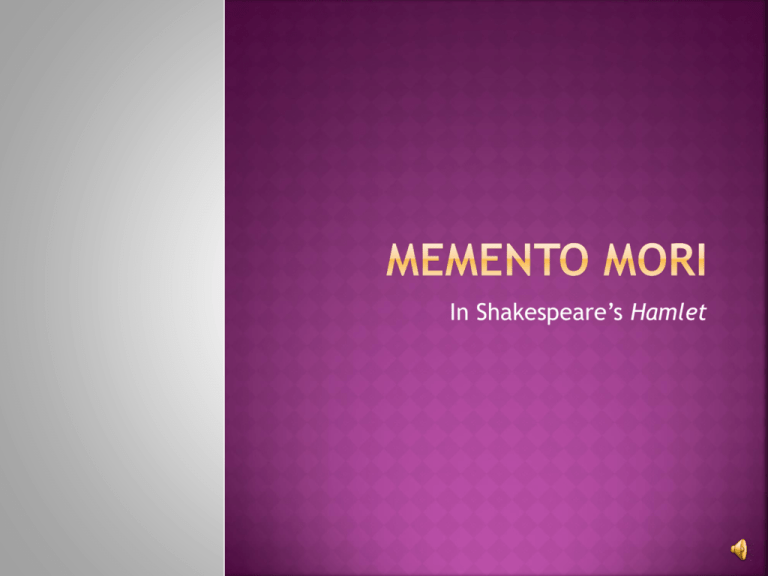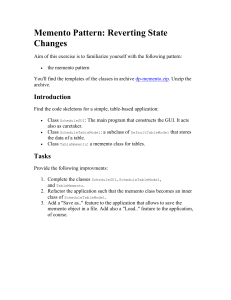Memento Mori
advertisement

In Shakespeare’s Hamlet The Oxford English Dictionary defines memento mori as: “Remember that you have to die." It is a warning or a reminder of death or mortality. Memento Mori was at one time a common tombstone inscription (Carroll 108). The words from the dead reached out to the living, reminding them that they too would find themselves in the ground one day. "In some Medieval and Renaissance visual art, a memento mori was indeed often introduced, and this tendency (which underwent considerable regeneration in the late 16th and early 17th centuries) is certainly germane to Hamlet “ (Maslen 4 ). Shakespeare reminds his audience of the morality of: Kings Princes Lovers Common men "The ghost of Hamlet Senior, then, serves as a more emphatic reminder of death by tempting Hamlet with "thoughts beyond the reaches of our souls” (I.iv. 56). Polonius’s death Ophelia’s rosemary Hamlet’s “To be or not to be” speech Ophelia’s suicide The gravedigger’s scene Alas, poor Yorick! I knew him, Horatio: a fellow of infinite jest, of most excellent fancy: he hath borne me on his back a thousand times; and now, how abhorred in my imagination it is! (5:1:185-87) Memento mori paralyzed and inspired Hamlet's tragedy. Works Cited Carroll, David. The Dictionary of Foreign Terms in the English Language. New York: Hawthorn Books, 1973. 108. Print. Maslen, Elizabeth. "Yorick's Place in Hamlet." Ed. Beatrice White. Essays and Studies 1983. Atlantic Highlands, N.J.: Humanities Press, 1983. 1-13. Print. Simpson, J. A. and E. S. C. Weiner, comps. The Oxford English Dictionary. 2nd ed. Vol. 9. Oxford: Clarendon, 1989. 20 vols. 593. Print.






